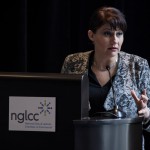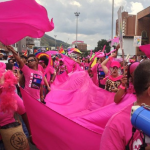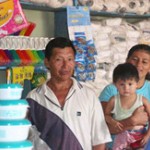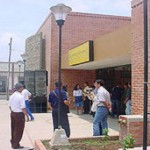
In recent years, the lesbian, gay, bisexual and transgender (LGBT) community in Colombia has successfully advocated the government for the recognition of many basic rights. With impressive progress being made on achieving human rights, USAID—through its LGBT Global Development Partnership—is now partnering on a new effort to address the economic discrimination historically faced by Colombia’s LGBT community.

July 2014—Maria Paula Santamaría died for reasons that were entirely preventable. When she needed urgent medical attention, she was turned away from a hospital in her hometown of Cali, Colombia, because she was transgender or “trans.” Santamaría was assigned male at birth, but identified as a woman.

July 2014—Colombia has seen many gains in lesbian, gay, bisexual and transgender (LGBT) human rights in recent years. Although these gains have been developing quickly, there is still a long way to go, especially for the transgender community.

In Colombia’s Caquetá region, more than 73,000 people have been driven from their homes by criminals and guerillas, usually at gun-point and with threats of violence. Blanca and Alberto were among those people. When forced to flee from their home with their children, they were violently uprooted from their community, family, and business.

Héctor Manuel Lozano is 35 years old and was born and raised in Aguachica in south César, a region in northeastern Colombia. He works full time at the Citizen Coexistence Center, an organization funded partly by USAID, which helps promote peace and conflict resolution in a community torn apart by fighting.








Comment
Make a general inquiry or suggest an improvement.